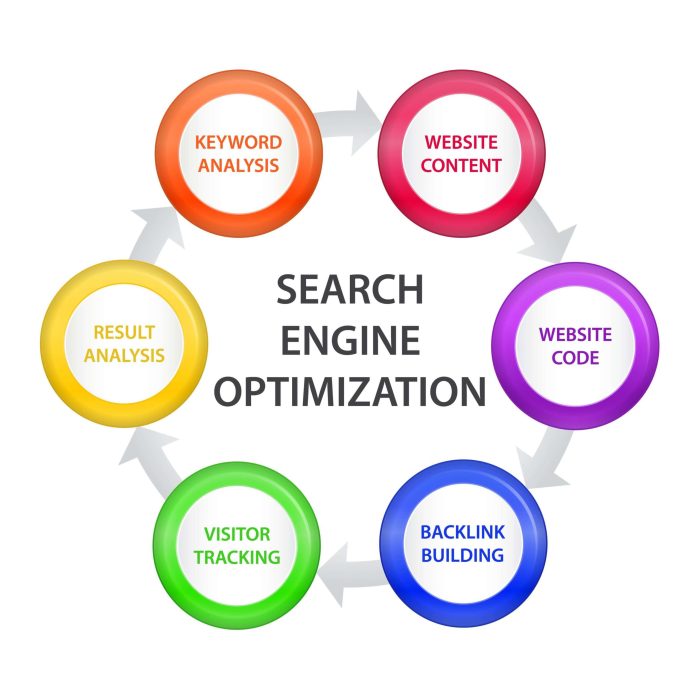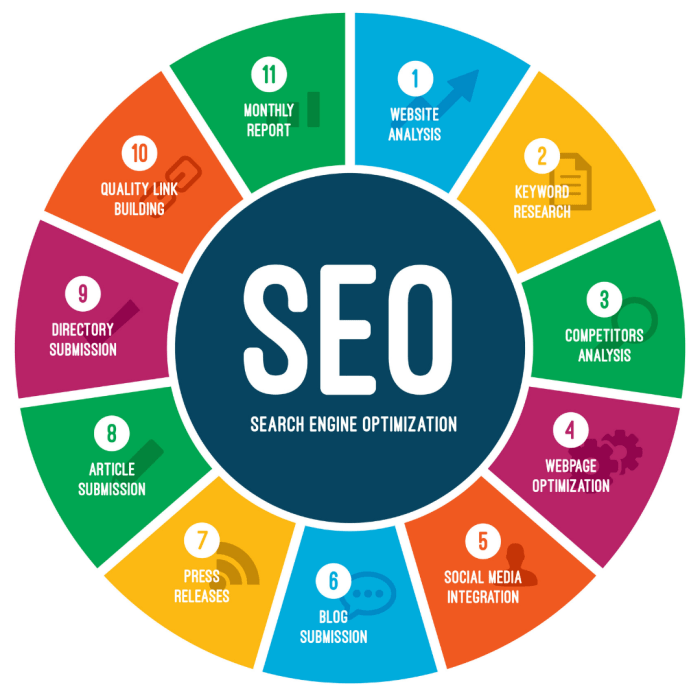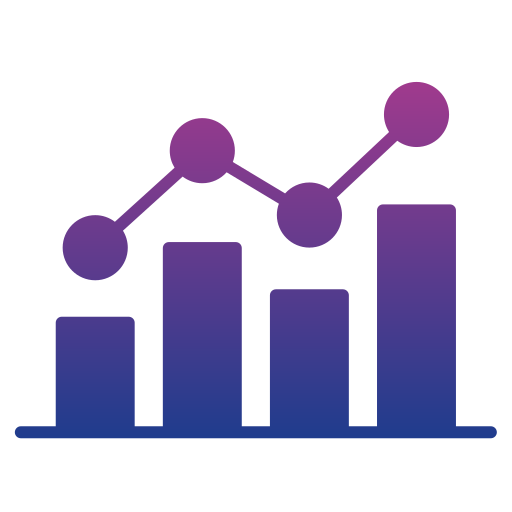AI-driven SEO optimization – AI-driven optimization is revolutionizing the way we approach search engine optimization. It’s no longer just about stuffing and link building; it’s about understanding user intent, creating high-quality content, and optimizing website performance for both humans and search engines.
AI tools are transforming the landscape, offering powerful insights and automation capabilities that were previously unimaginable.
From analyzing user search queries to identifying technical issues, AI algorithms are providing valuable data that helps SEOs make informed decisions. AI-powered content optimization tools are creating engaging and relevant content that resonates with audiences, while AI-driven technical tools are ensuring websites are accessible and load quickly.
This shift towards AI-powered is not just a trend; it’s a fundamental change in the way we optimize for search.
Core AI Techniques in

Artificial intelligence (AI) has revolutionized the field of search engine optimization (), offering powerful tools and techniques to enhance website visibility, improve user experience, and drive organic traffic. AI algorithms analyze vast amounts of data, including user search behavior, website content, and competitor strategies, to identify opportunities for optimization.
This allows professionals to make data-driven decisions, personalize content, and ultimately achieve better search engine rankings.
Machine Learning
Machine learning is a key AI technique used in . It involves training algorithms on large datasets to identify patterns and make predictions. In the context of , machine learning algorithms can be used to:
- Predict search engine rankings:By analyzing historical data on search engine rankings, machine learning algorithms can predict how a website’s ranking might change based on specific modifications to content, website structure, or other factors. This allows professionals to prioritize optimization efforts that are most likely to lead to improved rankings.
- Identify relevant s:Machine learning algorithms can analyze user search queries and website content to identify relevant s and phrases that users are likely to search for. This helps professionals create content that is optimized for relevant search terms and attracts the right audience.
- Personalize content:Machine learning algorithms can analyze user behavior and preferences to personalize content recommendations and website experiences. This can improve user engagement and satisfaction, leading to higher conversion rates and improved search engine rankings.
Natural Language Processing (NLP)
Natural language processing (NLP) is a branch of AI that focuses on enabling computers to understand and process human language. NLP techniques are used in to:
- Analyze user intent:NLP algorithms can analyze search queries to understand the user’s intent behind the search. This allows professionals to create content that accurately addresses the user’s needs and provides relevant information.
- Improve content quality:NLP techniques can be used to identify grammatical errors, improve readability, and ensure that content is engaging and informative. This helps to create high-quality content that is more likely to rank well in search results.
- Generate content:NLP algorithms can be used to generate content ideas and even write articles, blog posts, and other types of content. This can be helpful for professionals who are short on time or need to create content for a large number of pages.
Deep Learning
Deep learning is a subset of machine learning that uses artificial neural networks to analyze large amounts of data. Deep learning algorithms can be used in to:
- Improve search engine rankings:Deep learning algorithms can analyze vast amounts of data, including website content, user behavior, and competitor strategies, to identify patterns and make predictions about search engine rankings. This allows professionals to make data-driven decisions that are likely to improve their website’s visibility in search results.
- Optimize user experience:Deep learning algorithms can analyze user behavior and preferences to personalize website experiences and improve user engagement. This can lead to higher conversion rates and improved search engine rankings.
- Identify content gaps:Deep learning algorithms can analyze user search queries and website content to identify content gaps and opportunities for creating new, relevant content. This can help professionals expand their reach and attract a wider audience.
AI-Powered Content Optimization
AI is revolutionizing content optimization by enabling the creation of high-quality, relevant content that aligns with user search intent. AI-powered tools can analyze vast amounts of data, understand user behavior, and generate content that resonates with target audiences.
AI Tools for Content Creation, Optimization, and Analysis
AI tools are playing an increasingly crucial role in content optimization. Here’s a breakdown of various tools categorized by their functionalities:
| Category | Tool | Description |
|---|---|---|
| Content Creation | Jasper.ai | Generates high-quality, -optimized content for various formats, including blog posts, articles, and social media posts. |
| Copy.ai | Offers AI-powered copywriting tools to create engaging and persuasive content for websites, ads, and emails. | |
| Content Optimization | .ai | Analyzes website content and provides recommendations for improving performance. |
| SurferSEO | Uses AI to analyze search engine results pages (SERPs) and identify relevant s and content topics. | |
| Content Analysis | Google Analytics | Provides insights into website traffic, user behavior, and content performance. |
| SEMrush | Offers a comprehensive suite of tools, including content analysis, research, and competitor analysis. |
Examples of AI-Driven Content Optimization
AI-driven content optimization can significantly improve website ranking and engagement. Here are some real-world examples:
“By using AI-powered tools to analyze user search intent, a leading e-commerce website increased its organic traffic by 30% within six months.”
“A travel blog implemented AI-driven content recommendations, leading to a 25% increase in user engagement and a 15% rise in page views.”
AI-Driven Technical : AI-driven SEO Optimization
AI is revolutionizing the way we approach technical , offering powerful tools and insights to optimize website performance and enhance search engine visibility. By automating tasks and providing data-driven recommendations, AI helps us identify and resolve technical issues that can hinder website performance and user experience.
AI Tools for Technical
AI-powered tools are transforming technical by automating website crawling, error detection, and performance optimization. These tools leverage machine learning algorithms to analyze vast amounts of data, identify patterns, and provide actionable insights.
- Website Crawling:AI-powered crawlers can efficiently scan websites, identifying broken links, duplicate content, and other technical issues. These tools can also analyze website structure and navigation, providing insights into user behavior and potential areas for improvement.
- Error Detection:AI algorithms can analyze website logs and data to identify and prioritize technical errors, such as 404 errors, slow loading times, and mobile-friendliness issues. This enables SEOs to quickly address these issues and improve website performance.
- Performance Optimization:AI-powered tools can analyze website speed, mobile responsiveness, and other performance metrics to identify areas for improvement. They can recommend specific actions to optimize website performance and enhance user experience, leading to better search engine rankings.
AI-Powered Technical Improves Website Accessibility and Search Engine Visibility
AI-driven technical plays a crucial role in enhancing website accessibility and improving search engine visibility. By identifying and resolving technical issues, AI tools ensure that websites are accessible to all users, including those with disabilities. Furthermore, by optimizing website performance and user experience, AI helps websites rank higher in search engine results pages (SERPs), increasing organic traffic and visibility.
- Website Accessibility:AI-powered tools can analyze website content and structure to identify accessibility issues, such as missing alt text for images, inadequate color contrast, and poor keyboard navigation. By addressing these issues, websites become more accessible to users with disabilities, promoting inclusivity and improving user experience.
- Search Engine Visibility:AI-driven technical helps websites rank higher in SERPs by optimizing website performance, user experience, and technical aspects. AI tools can identify and resolve issues that affect search engine crawlability, indexing, and ranking, leading to improved organic visibility and increased traffic.
AI for Link Building and Outreach
AI is revolutionizing link building by automating tedious tasks, analyzing data to identify opportunities, and streamlining outreach efforts. This empowers SEOs to build high-quality backlinks efficiently, boosting their website’s ranking and visibility.
AI-Powered Link Profile Analysis
AI algorithms analyze link profiles to identify potential backlink opportunities. They can quickly assess the quality and relevance of existing backlinks, identify potential sources of high-quality backlinks, and discover emerging trends in the link building landscape. AI tools can also detect potential link building risks, such as spammy or low-quality backlinks, allowing SEOs to take proactive measures to mitigate these risks.
AI-Driven Link Outreach Automation
AI-powered tools can automate various aspects of link outreach, saving SEOs time and effort. These tools can identify relevant websites and bloggers, personalize outreach messages, and schedule follow-ups, significantly improving the efficiency of link building campaigns. AI-driven tools can also track the performance of outreach campaigns, providing valuable insights into what works and what doesn’t.
AI-powered link outreach tools can identify relevant websites and bloggers, personalize outreach messages, and schedule follow-ups, significantly improving the efficiency of link building campaigns.
Ethical Considerations of AI in Link Building
It is crucial to use AI for link building ethically and responsibly. While AI can automate and streamline the process, SEOs must ensure that all link building activities comply with search engine guidelines. This includes avoiding black hat tactics such as link schemes, paid links, and link exchanges.
Furthermore, SEOs should prioritize building high-quality, relevant backlinks that benefit users and contribute to the overall quality of the web.
AI-Driven Analytics and Reporting

AI is revolutionizing analytics by providing deeper insights into user behavior, website performance, and the effectiveness of strategies. AI-powered tools go beyond traditional analytics, offering predictive capabilities and automated reporting to optimize efforts.
AI Analysis of Website Data
AI algorithms analyze vast amounts of website data, including user interactions, search engine rankings, and content performance. This analysis goes beyond simple data aggregation, uncovering hidden patterns and trends that traditional analytics might miss.
- User Behavior Analysis:AI analyzes user sessions, including page views, bounce rates, scroll depth, and time spent on each page. This data helps identify user engagement levels, understand user journeys, and pinpoint areas for improvement. For example, if AI identifies a high bounce rate on a specific landing page, it might suggest improving the page’s content or design to better engage users.
- Website Performance Monitoring:AI monitors website speed, mobile responsiveness, and other technical factors that affect user experience and search engine rankings. It can identify performance bottlenecks and recommend solutions for optimization. For instance, if AI detects slow loading times on specific pages, it might suggest optimizing images, reducing code bloat, or improving server infrastructure.
- Effectiveness Evaluation:AI assesses the impact of strategies on website visibility and organic traffic. It analyzes rankings, backlink profiles, and content performance to identify areas for improvement and measure the success of initiatives. AI can track the effectiveness of different tactics, such as targeting, content optimization, and link building, to determine which strategies yield the best results.
Key Metrics Tracked by AI-Powered Analytics Tools
AI-powered analytics tools track a wide range of metrics to provide a comprehensive understanding of website performance and effectiveness.
| Metric | Description | Example |
|---|---|---|
| Organic Traffic | Visits to a website from search engines | An increase in organic traffic from 10,000 to 15,000 visitors per month |
| Rankings | Position of a website in search engine results pages (SERPs) for specific s | Improving from position 10 to position 5 for the “digital marketing” |
| Backlink Profile | Number and quality of websites linking to a website | Gaining 50 new backlinks from high-authority websites in the technology sector |
| Content Performance | Metrics like page views, time spent on page, and shares for individual pieces of content | A blog post generating 10,000 page views and 500 social shares |
| User Engagement | Metrics like bounce rate, scroll depth, and time spent on page | A decrease in bounce rate from 70% to 50% on a specific landing page |
| Website Speed | Time it takes for a website to load | Improving website loading time from 5 seconds to 2 seconds |
| Mobile Responsiveness | How well a website adapts to different screen sizes | Ensuring a website is optimized for mobile devices, with a fast loading time and easy navigation |
AI-Driven Reporting
AI-powered analytics tools generate automated reports that provide actionable insights and track progress over time. These reports go beyond simple data visualizations, offering insights and recommendations for improvement.
- Personalized Recommendations:AI analyzes data to provide tailored recommendations for optimizing website content, technical aspects, and strategies. For example, if AI detects a high bounce rate on a specific page, it might recommend revising the page’s content or adding a call-to-action to encourage user engagement.
- Trend Analysis:AI identifies trends in website data, such as changes in user behavior, rankings, and backlink profiles. This helps businesses anticipate future changes and adjust their strategies accordingly. For example, if AI detects a decline in organic traffic from a specific , it might recommend updating the content or targeting new s to maintain visibility.
- Performance Tracking:AI tracks the performance of initiatives over time, providing a clear picture of progress and areas for improvement. This data-driven approach allows businesses to measure the return on investment (ROI) of their efforts and make informed decisions about future strategies.
Future Trends in AI-Driven
The field of AI-driven is rapidly evolving, with new advancements and applications emerging constantly. As AI technology continues to mature, it is poised to further revolutionize the way professionals approach optimization.
The Rise of Conversational Search, AI-driven SEO optimization
Conversational search, powered by AI, allows users to interact with search engines in a more natural, human-like way, using voice or text to ask questions and receive comprehensive answers. This shift towards conversational search presents a significant opportunity for professionals to optimize content for natural language queries.
- AI-powered chatbots and virtual assistantswill play a crucial role in delivering personalized search results and providing immediate answers to user queries. These intelligent agents can analyze user intent and provide relevant information, enhancing the user experience and driving engagement.
- Natural language processing (NLP)will be essential for understanding the nuances of conversational queries and delivering accurate, contextually relevant results. professionals will need to adapt their content strategies to cater to the conversational nature of search.
- Semantic search, which focuses on understanding the meaning behind search queries, will become increasingly important. AI algorithms will analyze the context of search terms and provide results based on the user’s intent, rather than just matching s.
AI-Powered Content Personalization
AI will enable more sophisticated and personalized content experiences, tailoring content to individual user preferences and behaviors. This personalized approach will enhance user engagement and drive conversions.
- AI-driven recommendation engineswill analyze user data and preferences to suggest relevant content, products, or services. This personalized approach can significantly improve the user experience and increase conversion rates.
- Dynamic content generationwill allow websites to adapt content in real-time based on user behavior and preferences. This dynamic approach can create more engaging and relevant experiences for individual users.
- AI-powered content creation toolswill assist content creators in generating high-quality, engaging content that resonates with target audiences. These tools can analyze data, identify trends, and suggest topics and s that are likely to perform well.
Final Summary
As AI continues to evolve, its role in will only become more prominent. The future of is AI-driven, and those who embrace this technology will be best positioned to succeed. By leveraging AI tools and insights, SEOs can create a better user experience, improve website ranking, and ultimately drive more traffic and conversions.
General Inquiries
What are some examples of AI-powered tools?
Popular AI-powered tools include Serpstat, Semrush, Ahrefs, and Google Search Console. These tools utilize AI algorithms to analyze data, provide insights, and automate tasks.
How can I start using AI for ?
Start by identifying your key goals and researching AI tools that can help you achieve them. Experiment with different tools and see which ones provide the most valuable insights and automation capabilities. As you gain experience, you can gradually integrate AI into more aspects of your strategy.
Will AI replace professionals?
While AI can automate many tasks, it cannot replace the human element of . professionals are still needed to interpret data, develop strategies, and ensure ethical practices. AI is a powerful tool that can enhance the work of SEOs, but it cannot replace them entirely.
